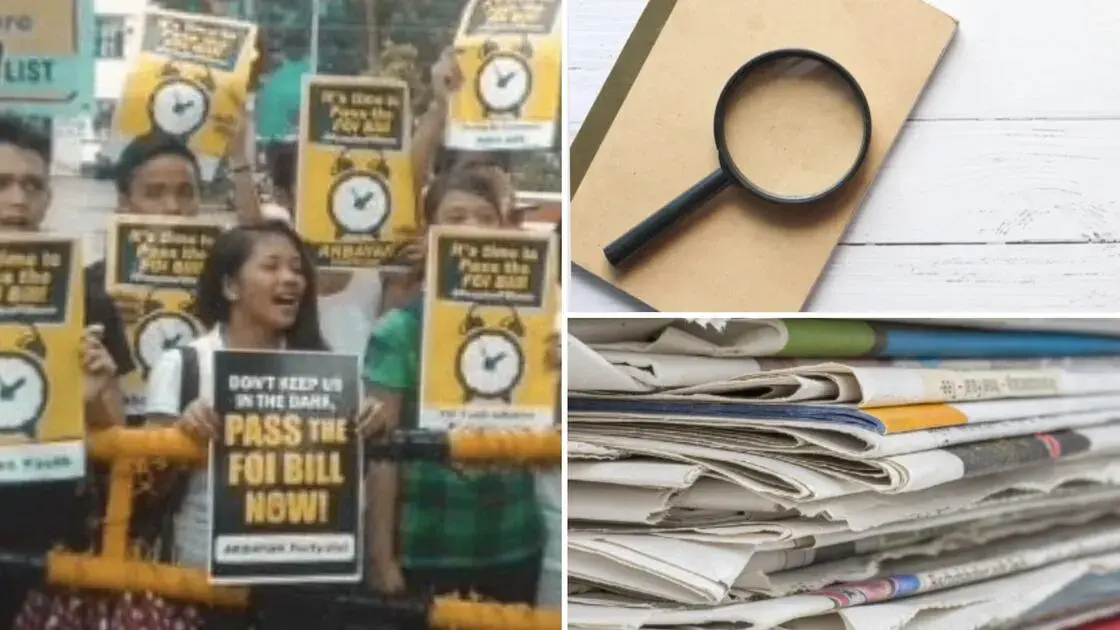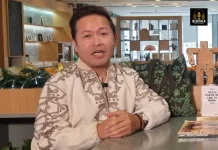
“If you look at good governance, one of the foundations is transparency and people’s participation,” former House Representative and De La Salle University (DLSU) lecturer Erin Tañada declared in a Good News Pilipinas interview.
At the center of a thriving democracy is a well-informed constituency with the power to participate in government. The Freedom of Information (FOI) Bill seeks to put this in motion by mandating transparency in the acts, decisions, data, and transactions of every government agency. Under FOI, citizens can freely request information from any office.
“It would help the citizens hold accountable government officials with regard to infrastructure, contracts, [and] bidding, to make sure that the projects that are being implemented are not going to waste and that no one is benefiting from corruption,” Tañada explained.
Not only does the bill promote citizen participation, but is also set to improve the landscape of press freedom. “Journalists will now have legal backing to request information—and demand it—and it’ll be more efficient,” said Kim Balasabas, the Editor-in-Chief of DLSU’s campus publication The LaSallian (TLS). “We stand on the front lines for the rest of the populace… The public’s right to know is what we protect and uphold.”
“What is lacking in our politics here in our country is engagement. If the citizens can access information with regard to the projects in a certain municipality or in a certain province, then citizens now can engage their leaders,” Tañada articulated. The FOI Bill sets its sights on encouraging open governance, bolstering Filipinos’ right to know. Armed with the freedom of information, Filipinos can illuminate the path to progress, empowering themselves to shape a brighter, more informed future for their nation.
Passage of the Bill
The first FOI bill was filed over 30 years ago in Congress, but to this day, no such law has been signed. A Congressman from 2004-2013, Tañada championed the FOI Bill in the 14th Congress; to date, that was the closest the bill had ever been to being passed.
“I believe in what the constitutional provision states: Article 3, Section 7 [covers] the right of information, and so I wanted to see this particular bill enacted into law because it will help the citizens access information in order to help in their decision-making process,” he began. During his second term in 2007, he started pushing for the bill to be enacted into law; it passed the House of Representatives and the Senate, but ultimately died as the House rejected its bicameral conference committee report in 2010.
Since then, FOI has lagged in the halls of Congress. Tañada attributed this to the stark lack of leaders fiercely advocating for Freedom of Information in the House and the Senate. Though many Congressmen have authored legislation on FOI—four FOI bills have been filed in 2022 alone—more action has to be taken in advocating for the bill.
“It’s the practice of the House and the Senate that unahan yan to try to file as many laws as they would want—‘yung magagandang laws that would catch attention,” Tañada stated. “But at the end of the day, meron ba talagang nag-champion sa House of Representatives, na ilalaban hanggang dulo itong FOI?”
(It’s the practice of the House and the Senate that they would try to be the first to file as many laws as they would want—the good laws that would catch attention. But at the end of the day, is there really a champion in the House of Representatives, who will fight for FOI to the end?)
“It’s absurd how this bill has been something I’ve heard of since I was in high school, and I am in my fifth year in college now,” Balasabas added. “For something that would uphold something so instrumental and fundamental as transparency—which in fact has been the reason for much of the government controversies since time immemorial—you’d think there’d be some more urgency.”
Problems with Current FOI Mechanisms
In the absence of a law, freedom of information is protected in Executive Order No. 2. Issued in 2016 and extended in 2022, it requires transparency in executive offices and departments. While Tañada hailed it as a “step forward”, it nevertheless suffers because of its limited scope. Aside from only covering the executive branch, the order only retains its force during a president’s administration—leaving room for doubt on the applicability of FOI in the future.
The present FOI executive order has also met constraints in its enforcement. The Philippine Center for Investigative Journalism (PCIJ) published a report indicating that, from 2016 to 2022, only 40% of FOI requests were granted by the executive; this is in contrast to the 80% approval rate that agencies must follow, as established by the Presidential Communications Operations Office.
The report credited this to insufficient government manpower; citizens’ uncertainty about the procedure for filing their submissions; and the dominance of privacy laws that empower agencies to override FOI requests. According to PCIJ, requests for information regarding government contracts and leaders’ Statements of Assets, Liabilities and Net Worth (SALN) were particularly blocked.
The issue of freedom of information is only exacerbated for campus journalists such as Balasabas. “As a journalist in TLS, we’ve always tried to reach out to government offices and it was a hassle. Unlike the mainstream media, we don’t have that kind of privilege or access,” she recalled.
“Recently there was an explosion in a nearby building [from] DLSU. We tried to [contact] the local police, [but] they wouldn’t talk to us. And so in my recent coverages or articles, I just got what I could on the internet,” she continued. “Truly, I think it’s unfortunate that we have to be resourceful to be able to talk extensively about [our topics on the] national and local government.”
True to this state of affairs, Transparency International gave the Philippines a 129 ranking out of the 183 countries surveyed. “The government has to do much more in trying to make information more accessible. This is why a law is important. And if we continue with the present setup, I believe that our rankings may even grow lower,” Tañada remarked.
The Future of FOI
Despite the challenges, the fight for FOI has fearlessly continued. “[In regards to whether] there’s a chance that we will see an FOI law, I would always say there’s hope,” Tañada declared. He mentioned that the Right to Know Right Now coalition, of which he is part, has continued to lobby for the bill in the present administration.
In light of this, Tañada rallied individuals to be diligent in requesting information. “With FOI in place, it would now even strengthen the bottom-up approach that we all want,” he said. “The citizens have to take action… It is really a need for the citizens to take the step, to ask for the information, in order that information be given.”
With more demand for information, it is hoped that government officials will more vigorously heed the call for FOI. Until now, the full potential of FOI has remained untapped. Starting first with the journalistic world, FOI would radically change the Philippines as we know it.
“A good journalist contributes to the discussion by [informing the] citizenry on not just what the governing system is doing but also on what should be done,” Balasabas proclaimed. “With the necessary information, the analyses and calls to action are more informed and complete. We get to be successful and effective in our duty to provoke readers into meaningful action and critical thought.”
Truly, the journey to attain freedom of information has been a lengthy and enduring one. After three decades of tireless effort, our active involvement becomes the linchpin in turning this bill into reality—forging a more transparent and honest Philippines for all.
This article on Freedom of Information is one of four parts in the Good News Pilipinas special series on Good Governance. Curious to see what other positive government initiatives are underway? Check out what’s yet to come for the series here!
Good News Pilipinas is a Lasallian Scholarum Awardee. TELL US your good news story tips by messaging GoodNewsPilipinas.com on Facebook, Twitter, or Instagram, or e-mailing editor@goodnewspilipinas.com










